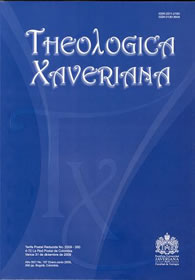Abstract
Some authors have expressed the idea that Dei Verbum –the Dogmatic Constitution of the II Vatican Council on Divine Revelation– as well as the document of the Pontifical Biblical Commission on The Interpretation of the Bible in the Church juxtapose exegesis and theology, so that one cannot clearly perceive how the Bible –litteral sense– can be the soul of theology. After referring to some of them, the author of this paper mentions some features of the Catholic interpretation of the Bible. Later he poses the problem of whether –and in what sense– a Catholic exegesis is possible, and finally focuses on the question of what are the norms of actualization that The Interpretation of the Bible in the Church considers that the exegesis proposes to theology.
This journal is registered under a Creative Commons Attribution 4.0 International Public License. Thus, this work may be reproduced, distributed, and publicly shared in digital format, as long as the names of the authors and Pontificia Universidad Javeriana are acknowledged. Others are allowed to quote, adapt, transform, auto-archive, republish, and create based on this material, for any purpose (even commercial ones), provided the authorship is duly acknowledged, a link to the original work is provided, and it is specified if changes have been made. Pontificia Universidad Javeriana does not hold the rights of published works and the authors are solely responsible for the contents of their works; they keep the moral, intellectual, privacy, and publicity rights.
Approving the intervention of the work (review, copy-editing, translation, layout) and the following outreach, are granted through an use license and not through an assignment of rights. This means the journal and Pontificia Universidad Javeriana cannot be held responsible for any ethical malpractice by the authors. As a consequence of the protection granted by the use license, the journal is not required to publish recantations or modify information already published, unless the errata stems from the editorial management process. Publishing contents in this journal does not generate royalties for contributors.


